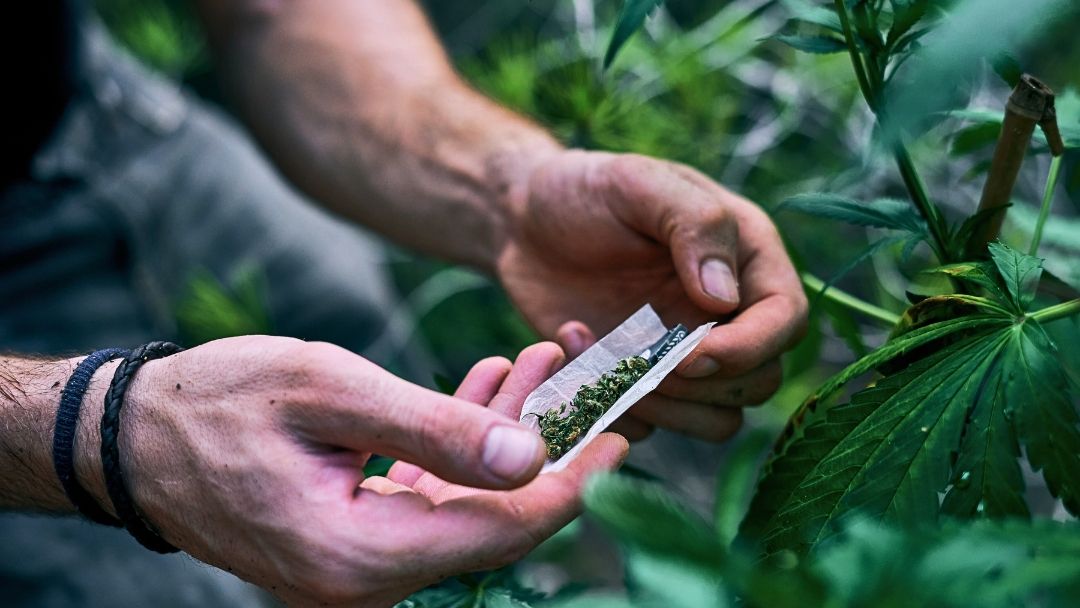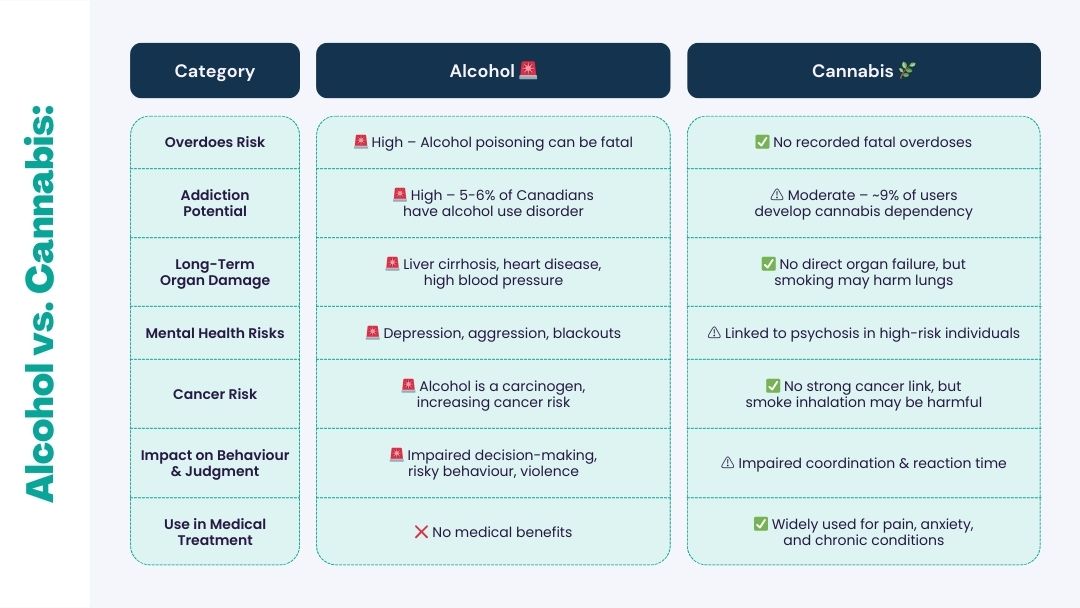For decades, alcohol has been widely accepted in social and professional settings, while cannabis has been stigmatized. But as medical cannabis becomes more mainstream, many are questioning: Which substance is actually worse for your health?
For those using cannabis as medicine - especially workers in safety-sensitive industries - it’s important to understand how both substances affect the body and mind.
Let’s break down the pros and cons of alcohol vs. cannabis in terms of health risks, addiction, and long-term effects.
For those using cannabis as medicine - especially workers in safety-sensitive industries - it’s important to understand how both substances affect the body and mind.
Let’s break down the pros and cons of alcohol vs. cannabis in terms of health risks, addiction, and long-term effects.

Alcohol: Pros & Cons
✅ Pros of Alcohol (In Moderation)
Social Acceptance – Alcohol is widely accepted in most cultures, making it easier to consume in social settings.
Heart Health Benefits? – Some studies suggest that moderate alcohol consumption (especially red wine) may have cardiovascular benefits—but only in very limited amounts.
Short-Term Relaxation – A drink can temporarily reduce stress and anxiety by increasing dopamine levels.
❌ Cons of Alcohol
Highly Addictive – 5-6% of Canadians suffer from alcohol use disorder (AUD), with severe withdrawal symptoms that can be life-threatening.
Liver & Heart Damage – Chronic alcohol use is a major cause of liver cirrhosis, high blood pressure, and heart disease.
Cancer Risk – Alcohol is a classified carcinogen, linked to breast, liver, and esophageal cancers.
High Overdose Potential – Alcohol poisoning is a leading cause of preventable death, especially in binge drinking situations.
Increased Violence & Risky Behaviour – Alcohol is strongly associated with aggressive behaviour, impaired decision-making, and accidents

Cannabis: Pros & Cons
✅ Pros of Cannabis (Especially for Medical Use)
Non-Lethal – There are zero recorded deaths from cannabis overdose. Unlike alcohol, cannabis does not depress respiratory function.
Pain Relief – Medical cannabis is widely used to manage chronic pain, inflammation, and neuropathic conditions.
Fewer Long-Term Health Risks – Unlike alcohol, cannabis is not linked to organ failure, high blood pressure, or cancer.
Helps with Anxiety & PTSD – CBD-rich cannabis is known for its calming effects, helping some individuals manage stress, anxiety, and PTSD.
Potential for Harm Reduction – Studies show some people use cannabis as a substitute for alcohol and opioids, reducing reliance on more dangerous substances.

❌ Cons of Cannabis
Impairment & Workplace Safety Risks – THC affects reaction time, coordination, and memory, making workplace impairment a major concern (especially in industries like construction).
Potential for Dependence – 9% of cannabis users develop Cannabis Use Disorder (CUD), though withdrawal symptoms are milder than alcohol withdrawal.
Mental Health Risks (in Some Users) – Heavy cannabis use (especially high-THC strains) has been linked to an increased risk of psychosis in those predisposed to mental health conditions.
Lung Health (If Smoked) – Smoking cannabis can cause bronchitis and lung irritation, although vaporizing or consuming edibles reduces this risk.
Memory & Cognitive Function – Long-term heavy cannabis use may impact memory and cognitive ability, especially in younger users.
Which Is Worse for Your Health?

